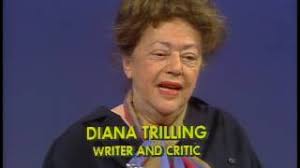7. Lia Purpura
“What’s
the word for an elegy that mourns a thing it never knew?” -Lia Purpura
It’s easy to project
ourselves back into a superior imagined past. I do it all the time. I imagine many
other people do as well. I’m not talking about feeling nostalgic for your actual
youth, although I’m no stranger to that feeling either. But that sort of
nostalgia is too subject to the hard facts of our lived pasts, and besides,
those who had less than idyllic childhoods are unlikely to have access to this
feeling. Rather, I’m talking about a nostalgia for a past we have not
experienced, one that we can freely project our fantasies onto, creating an
idealized reality where we can live in a way that, in our own diminished world,
is no longer possible.
Whereas my baseless
nostalgia centers largely on the fantasies I share with many New Yorkers who
felt they came to the city too late (What would it have been like to live in
Downtown Manhattan in the late ‘70s/early ‘80s? How about Williamsburg in the
‘90s?), the subjects of essayist Lia Purpura’s imaginings are considerably
different. Sixteen years older than I am and, from what I can gather,
conversant with the city’s bygone past (“Look, I’m from New York,” she lets us
know), Purpura is also far more interested in both the natural world and in the
nuts and bolts processes of living than in any scene-y grasping at the past.
Her essays are studies in attention, lavishing careful consideration on her
relationship with both objects and the environment while, at the same time,
bemoaning the diminished level of our interactions with each. And so the
reflection that causes her to “mourn [the] thing [she] never knew” is not any
urban fantasy but the imagined loss she would have felt, had she lived at the
time when indoor plumbing was first established, at no longer needing to go out
to the well to pump water.
The object of Purpura’s
elegy is very different from mine but the sentiment behind it is the same. It
has to do with a suspicion of the present. In my case, that suspicion is deep
and unwavering, defined by an awareness of impending ecological disaster on the
one hand and the technology-fueled diminishment of my sense of self on the
other. To me, it truly feels like some kind of end. For Purpura, the feelings
are more measured. In her essay, “Loss Collection,” from which the quote above
is taken, she offers up a series of brief sketches that reflect on the sense of
lack that she and others have felt around a variety of objects, such as a dead
sparrow being removed from her daily path or Thoreau’s trading of an open fire in
his Walden house for a small cooking stove. What these sketches show is not
just that the present is suspect, but that the present has always been suspect,
that we’ve always felt some kind of loss from simply existing in the moment we
were born into. At the same time, what may be for some a particularly
alienating moment, can for others prove empowering, offering new freedoms and
new opportunities for expression that they’ve been denied in the past. As a
society, we tend to move forward and backward in equal measure. Where we go
from here then isn’t certain; the only thing we know for sure is that we’ve
been here before.



Comments
Post a Comment